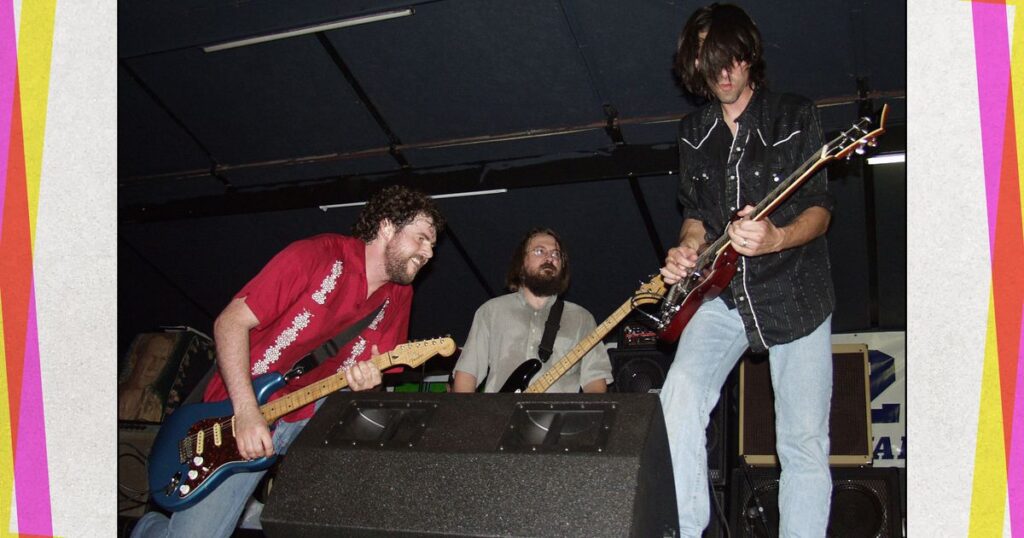Patterson Hood (left) and Mike Cooley (right).
Photo: Chris Mckay/Shutterstock
In the summer of 2021, with concert returns in sight, the Drive-By Truckers scheduled studio time to reconnect musically. Instead of formal rehearsals, the southern rock band aimed to reacquaint themselves with live performance. Just before their studio session, they were invited to perform at Under the Big Sky festival in Montana without a sound check, marking their first show in over a year. “And it was one of the happiest hours of my life,” Hood reflects on the experience.
The Drive-By Truckers embrace imperfection in their live performances. “Rock and roll should go off the rails,” Hood asserts, underscoring their philosophy that adds to their appeal as a live act. Their 26-year journey, which included supporting Americana star Jason Isbell, culminates in their 14th studio album, *Welcome 2 Club XIII*, releasing today. This album emerged from their 2021 demo sessions when they realized they had enough material for a full record.
The album derives its title from a venue in Muscle Shoals, Alabama, infused with nostalgia for the band’s origins, especially highlighted in the lead single “Welcome 2 Club XIII.” Unlike their prior politically charged records, this album offers a palette of relief amid Hood’s simmering frustrations regarding issues like the Supreme Court’s abortion ruling and recent national violence. He describes the process of creating *Club XIII* as “a relief,” maintaining the band’s foundational identity as a rock band.
Hood elaborates on the single, “Welcome 2 Club XIII,” positioning it as an anti-glory-days anthem that’s humorous and fun, reminiscent of earlier compositions. He notes a contrast between the dark tone of their recent albums and the joyous nature of their live performances. Cooley chimes in on the song’s narrative, suggesting it reflects on their past adventures, with one of the better memories depicted in the lyrics.
Reflecting on their initial band, Adam’s House Cat, Hood shares the frustration of being a talented group without the right opportunities to thrive beyond their hometown. He recalls, “We practiced a lot, and we got really good at doing it, and yet never really got to take it out and drive it properly.” Acknowledging their growth over the years, Hood expresses his admiration for Cooley’s writing as well, praising their collaborative spirit and musical journey.
The discussion touches on Hood’s favorite tracks, including “Every Single Storied Flameout,” as well as Cooley’s contributions that showcase their creative synergy. They acknowledge past albums with too many songs and discuss learning experiences from recording sessions, underscoring their commitment to continuously evolving their sound.


